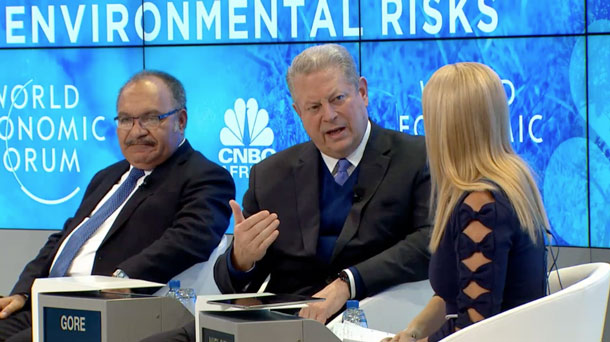Geographical factor of climate
Climate is one of the 6 geographical factor that we are using to understand geopolitics in the Asia-Pacific region. Apart from climate, we have location, size, topography, natural resources and demography.
Climate is defined as the meteorological conditions, including temperature, precipitation, and wind, that characteristically prevail in a particular region. Also it is referred to as the long-term prevalent weather condition of an area, determined by latitude, position relative to oceans or continents, altitude, and others.
One particular geopolitical issue connected to climate is climate change or global warming. The green house gas emissions are polluting the stratospheric ozone layer. In particular, compounds such as chlorofluorocarbons, halons, carbon tetrachloride and methyl chloroform. The ozone layer shields the planet from damaging UV-B radiation.
Goldstein (2005: pp. 422-423) states that:
"It is very difficult to reduce the emission of gases - mainly carbon dioxide - that cause global warming. These gases result from the broad spectrum of activities that drive an industrial economy. They are a by-product of burning fossil fuels - oil, coal, and natural gas - to run cars, tractors, furnaces, factories, and so forth."
He also explains that the cost of reducing the impact of the emissions is high. It involves slowing down the rate of economic growth or developing new technological paths. The political costs of such actions are:
- increasing unemployment
- reduction of corporate profits
- lowering of personal incomes
For reduction of corporate profits, the Trump Administration is closely tied to the fossil fuel industry. Interest groups from the industry play a pivotal role in American politics. The fossil fuel industries hold powerful political clout over the Trump Administration and the Republican Party. This was one reason why Trump pulled America out of the Paris Agreement.
Another reason is connected to Trump's skepticism. He is skeptical of climate change and refuse to acknowledge the fundamental principle of common but differentiated responsibility in global climate cooperation. He believes that China and India's mitigation obligations should be the same as the US to make it fair.
On the other hand, you have small island states in the Pacific like PNG who worry that they are likely to disappear this century. The Boe Declaration is an answer to the Pacific prayer.
"The declaration expands the idea of regional security to include environmental issues. It specifically names climate change as the region's single greatest threat."
Australia as a bigger power in the region tried to water down the final declaration according to some Pacific Island leaders. Tuvalu's Prime Minister did not name Australia directly but indirectly hinted that Australia did object.
Australia's objection could be linked to the 3 political costs outlined above. Surely emissions reduction will have an impact on the electricity, agriculture or transport industry. Hence, the Australia government will need to consider their national interest apart from subjecting to the collective interest of their smaller Pacific neighbours.
What is happening with American and Australia is a good case study for the geographical factor of climate. Both are playing the two level games carefully, if they blindly follow other countries in the fight against climate change in the international arena, they might end up creating a fragile domestic political climate.
Unfortunately, the same cannot be said for PNG. We are not an industrialized country. Thus, it is easy for the current government and our Prime Minister to advocate about the issue and sign up to various international obligations.
In 2016, PNG was the first country to send its formal climate action plan under the Paris Climate Change Agreement to the UN climate change secretariat. Christiana Figueres, Executive Secretary of the United Nations Framework Convention on Climate Change said:
"I congratulate Papua New Guinea on this first nationally determine contribution. Before the UN climate change conference in Paris, the international community had already envisioned an unprecedented response with almost every nation on Earth setting out their preliminary action plans to address climate change. These provide the foundation upon which the world will over time strengthen their ability to keep a global temperature rise well under 2 degrees C if not 1.5 degrees C, and build resilient societies. Much more remains to be done but nationally determined contributions under the Paris Agreement represent one of the next key steps alongside the opening for signature of the Agreement in New York on April 22 en route to it swiftly coming into force".
Again, as stated in the previous article, PNG is a poster boy for the climate change issue globally. Peter O'Neill is doing well in aligning national plans, policies and legislation with international plans and conventions.
Reference
Goldstein, J. (2005). International relations (6th ed.). Beijing: Peking University Press.

Comments
Post a Comment